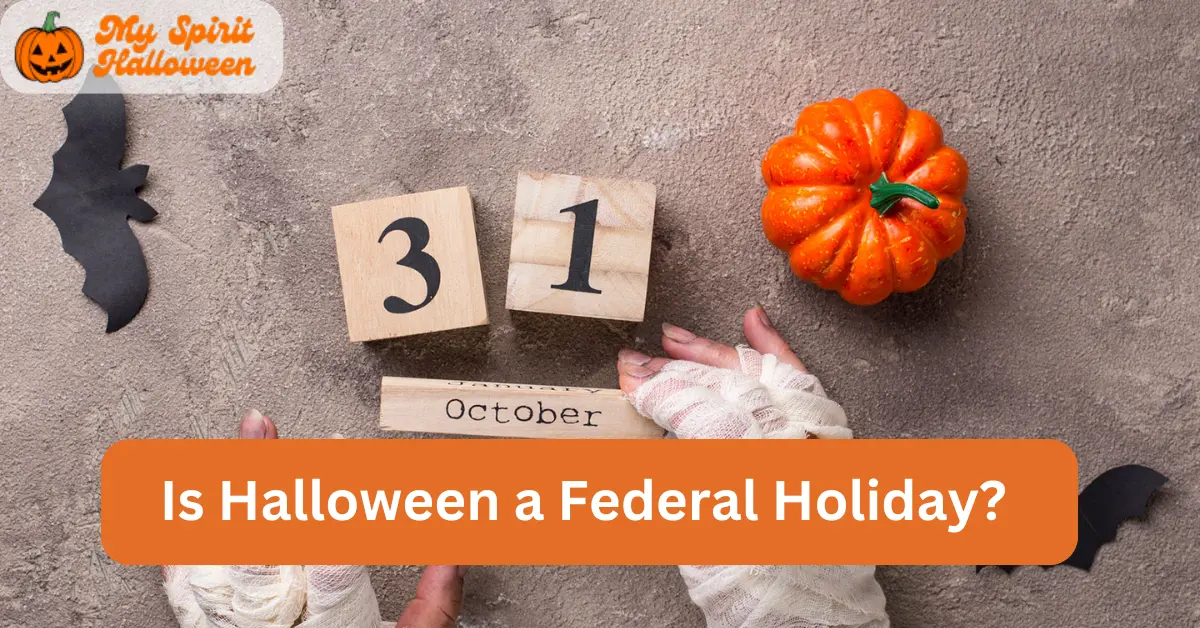
Halloween, celebrated annually on October 31st, is a popular holiday known for its spooky themes, trick-or-treating, costume parties, and community activities.
While Halloween has significant cultural importance in the United States and many parts of the world, it sparks a common question: Is Halloween a federal holiday?
In this article, we’ll delve into this query, explore the origins of Halloween, its modern significance, and why it does not hold official status as a federal holiday in the U.S.
1. What is a Federal Holiday?
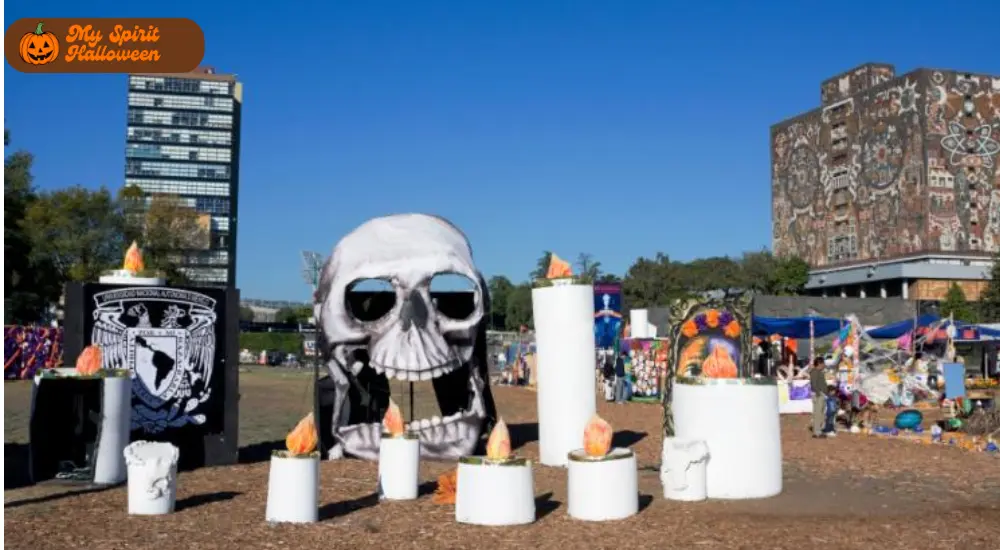
To answer the primary question, it’s essential to understand the concept of a federal holiday in the United States. A federal holiday is a legally recognized day off for federal government employees and the general public.
These holidays often honor significant historical figures, national milestones, or religious events. Federal employees typically receive paid time off, and many businesses close in observance.
There are currently 11 federal holidays in the U.S., including New Year’s Day, Independence Day, Christmas Day, and Labor Day, among others. However, Halloween is not one of them.
2. Brief History of Halloween
Halloween traces its roots back to the ancient Celtic festival of Samhain, a day marking the end of the harvest season and the onset of winter.
The Celts believed that on this day, the boundary between the living and the dead was blurred, allowing spirits to return to the Earth. To ward off these spirits, people would light bonfires and wear costumes to protect themselves from malevolent entities.
Later, with the rise of Christianity, All Saints’ Day, also known as All Hallows’ Day, was established on November 1st. The evening before, October 31st, became All Hallows’ Eve, which eventually evolved into Halloween. Over centuries, Halloween transformed from a religious observance into a secular holiday filled with fun, fright, and festivities.
3. Why Halloween is Not a Federal Holiday
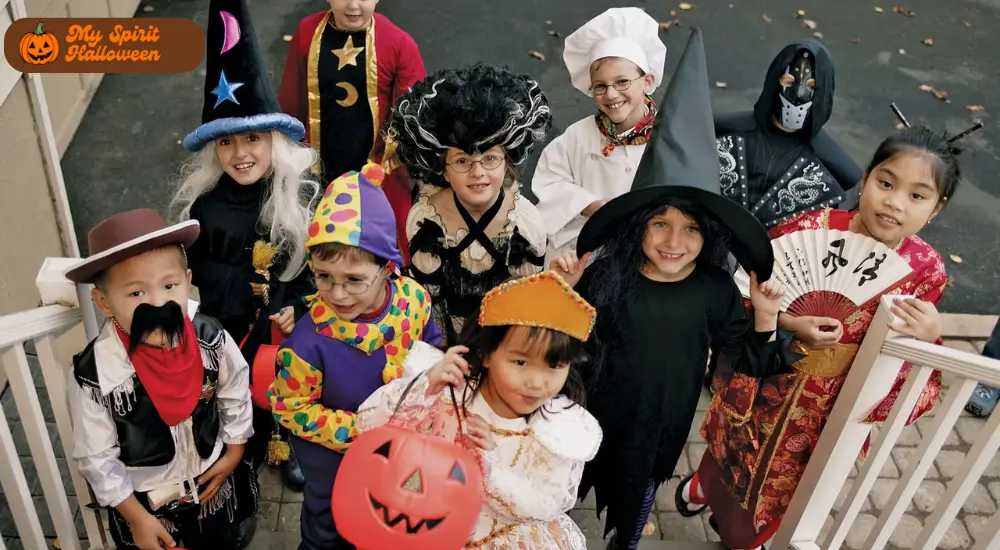
Despite Halloween’s popularity, it has never been classified as a federal holiday in the U.S. There are several reasons for this:
- Historical Context: Most federal holidays commemorate significant national events or figures such as the Fourth of July (Independence Day), Veterans Day, or Martin Luther King Jr. Day.
Halloween, by contrast, does not have historical ties to the formation or preservation of the nation, nor does it celebrate an individual of major national importance. - Cultural Over Religious Significance: While some federal holidays like Christmas are religious in nature, Halloween’s origins are more cultural than religious in modern times.
It is now celebrated with secular customs like dressing up, trick-or-treating, and pumpkin carving rather than religious rituals. - Lack of Advocacy: No significant political or public advocacy has been made for Halloween to become a federal holiday. Other movements, such as for Juneteenth, have seen successful pushes for recognition due to their historical and social importance.
Halloween, however, is largely viewed as a light-hearted, commercial holiday rather than a day requiring national observance.
4. Cultural Significance of Halloween in the U.S.
While Halloween is not a federal holiday, it holds significant cultural importance. For many Americans, it’s a time for communities to come together, engage in festive activities, and celebrate creativity.
Halloween is the second-largest commercial holiday in the U.S., generating billions in retail sales annually, including costumes, decorations, candy, and party supplies.
Families enjoy traditions such as:
- Trick-or-treating: Children dress up and visit neighbors to collect candy.
- Costume parties: Adults and children alike participate in themed events and parties.
- Haunted houses and ghost tours: Attractions designed to spook and entertain thrill-seekers.
- Pumpkin carving: Creating jack-o’-lanterns out of pumpkins is a popular Halloween pastime.
Though it’s not officially a day off, many people schedule events and celebrations leading up to and on October 31st, especially in schools and workplaces, which often organize costume contests and themed decorations.

5. How Halloween is Celebrated
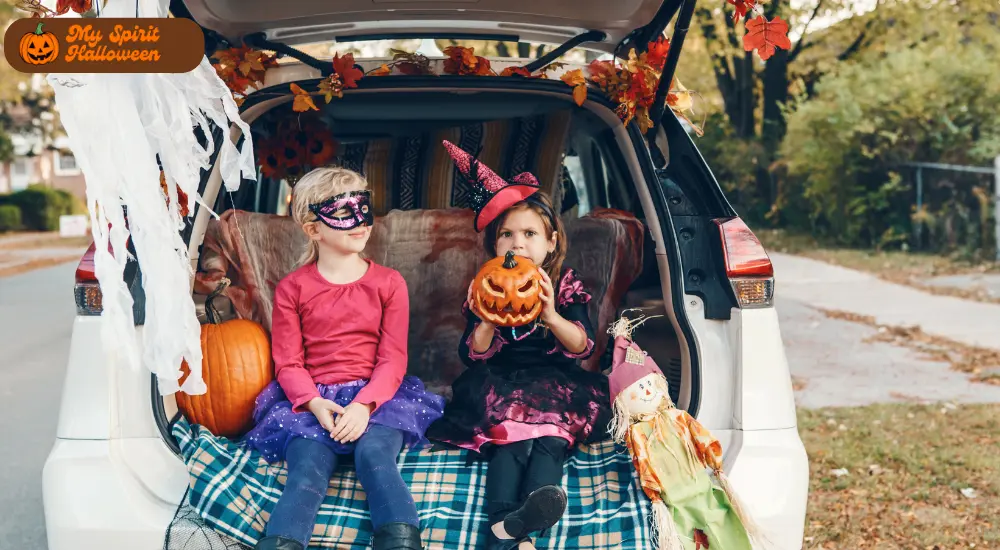
Across the U.S., Halloween is celebrated with a mix of traditional and modern activities. These include:
- Costumes: Both children and adults love to dress up, often in spooky or pop-culture-inspired outfits.
- Candy: According to the National Retail Federation, millions of pounds of candy are sold for Halloween each year, making it one of the biggest candy-buying events in the country.
- Halloween parades: Cities such as New York host famous Halloween parades, where thousands of people come together to display creative costumes.
- Horror movie marathons: Many households and TV networks air classic horror films in October to set the mood for Halloween.
- Halloween decorations: People go all out to decorate their homes and yards with themes like graveyards, ghosts, witches, and skeletons.
6. Is Halloween Considered a Public Holiday in Other Countries?
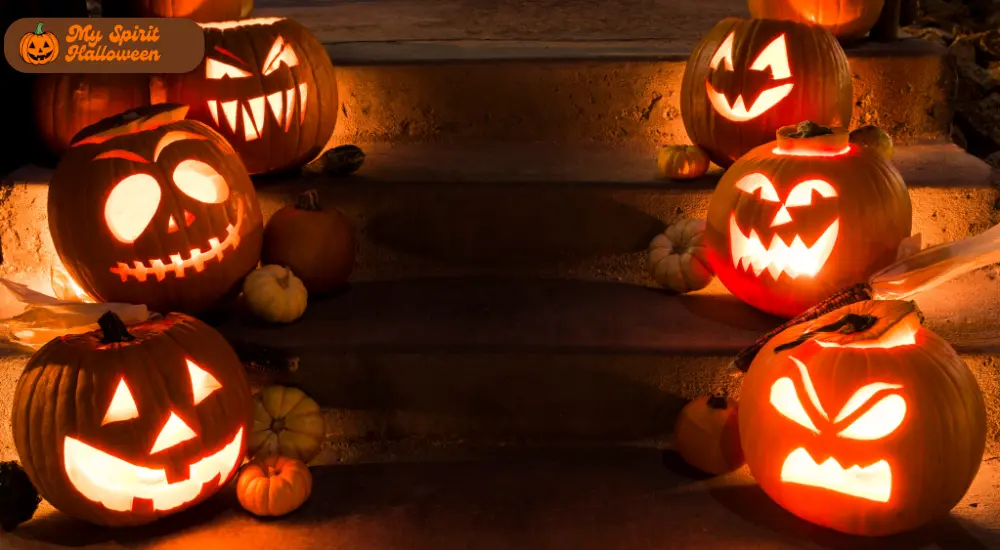
Halloween is not a federal holiday in any country, but it is celebrated in various forms worldwide. In Canada, Halloween traditions are similar to those in the U.S.
With trick-or-treating, costume parties, and themed decorations being popular. However, like in the U.S., it is not a public holiday.
In parts of Europe, Halloween is growing in popularity, especially in the UK, Ireland, and Spain, where costume parties and pumpkin carving are gaining ground.
Other nations, such as Mexico, observe Día de los Muertos (Day of the Dead) around the same time, though this holiday has different cultural roots.
Conclusion
While Halloween continues to grow in popularity and become a major cultural event in the U.S., it is unlikely to gain federal holiday status anytime soon.
Its roots in ancient tradition and modern-day commercial success ensure it remains one of the most anticipated and celebrated times of the year without the need for formal recognition.
The thrill of costumes, candy, and haunted houses will likely keep Halloween a cherished cultural event for generations to come.
FAQs
Halloween is not a federal holiday because it doesn’t commemorate a national event or person of historical significance in the U.S., and there hasn’t been any significant push for its recognition as one.
Federal holidays like Labor Day and Christmas often grant time off for federal workers and public institutions, while Halloween is celebrated with community activities without formal recognition or mandatory time off.
While it’s possible, there’s no major movement pushing for Halloween to gain federal holiday status. Its current status as a culturally significant but non-official holiday will likely remain.
Most businesses remain open on Halloween, though some may close early to allow employees to participate in evening festivities. Some schools may hold events but typically remain open as well.
No U.S. state recognizes Halloween as an official public holiday with mandatory closures or time off, though many local communities celebrate it enthusiastically.
Related Post
- Halloween STEM Activities
- Is It a Sin to Celebrate Halloween?
- Halloween vs Christmas
- Best Free Halloween Crochet Patterns for Beginners, Kids, and Adults
- DIY Halloween Archway Ideas


